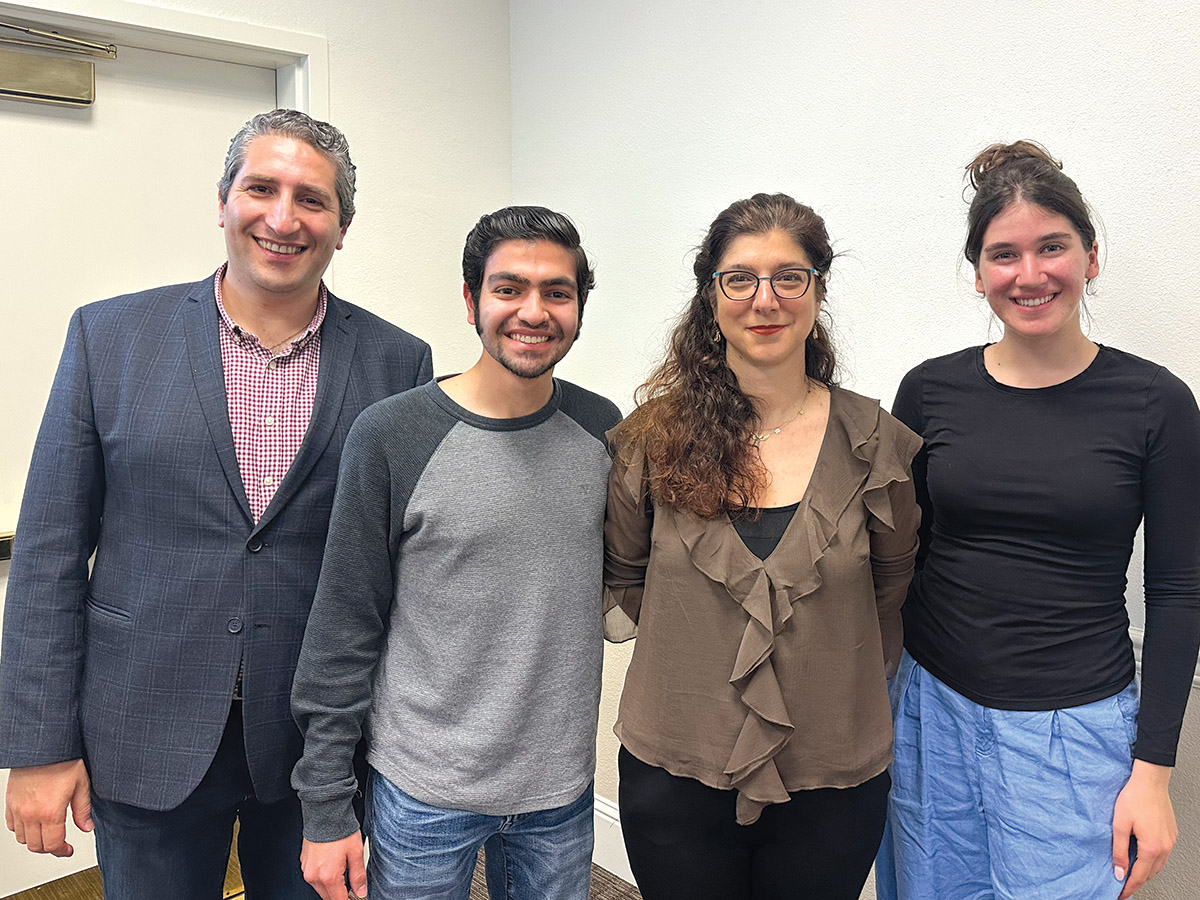
Photo: Barlow Der Mugrdechian
Ani Sargsyan
Staff Writer
On Friday, March 28, 2025, the Armenian Studies Program welcomed Dr. Talin Suciyan, Kazan Visiting Professor in Armenian Studies, for her third lecture of the semester titled “Kept with Care: Letters from Purgatory.”
Dr. Suciyan discussed a series of letters written between 1913 and 1917 from Arabgir to Philadelphia, between Kevork Shamlian, and his younger brother Mardiros, and 19-year-old son, Arakel. This was the first time that the letters were publicly presented. Mardiros and Arakel migrated to Philadelphia due to the harsh and unstable conditions for young men in the Ottoman Empire. By studying the letters and exploring the world they spoke of, conditions of Armenians in the Ottoman provinces were revealed. The anxiety of a father who sent his son away for his safety was a consistent topic throughout Dr. Suciyan’s research.
The project was made possible through Susan Shamlian-Pogharian and her family who kept these precious letters. Susan’s aunt, Maritsa Shamlian, the eldest child of Arakel Shamlian, was the original custodian of the letters. Dr. Suciyan explained the process of digitizing, reading, and transcribing the letters and meeting weekly, over a period of a year, to read them with Susan Shamlian-Pogharian, Susan Arpajian Jolley, and John Paulson.
The letters mainly feature the correspondence between Kevork and his son Arakel. They both left their hometown and made the long and risky journey to the United States as migrant workers, because of long-standing abusive and oppressive taxes that they could no longer pay. The worries and concerns for his son’s safety and the longing to be reunited with him are reflected in each of Kevork’s letters. Dr. Suciyan shared some direct quotes from some of these letters, reflecting these strong feelings, especially when Kevork finally heard back from his son. In one letter Kevork expresses his anxiety about his son Arakel’s long journey and the fact that he has not heard from him for almost a month. “Night and day in my dreams, one part of the house was burned. This is the enemy’s work of course,” said Kevork. “Then I would wake up and there is nothing. Finally, these nightmares ended, I was thinking something must have happened either to my brother or to my son, Arakel. Yet blessed is the God who turns darkness into light. Your letters have comforted us by all means.”
The relief from hearing back from his son each and every time was something that kept them alive, in a sense. In one instance, when Kevork sent a letter addressing both his brother and son, but only his son responded, Kevork sent another letter saying “We received a letter that only Arakel wrote. You didn’t even sign your name. It made us anxious that you didn’t put your name. Please, after this, in every letter, write two lines to console us.” This sentence highlights the uncertainty Kevork felt when not receiving any updates or signs of life from his brother.
There is another theme that is reflected in the letters – reassurance. Kevork never fails to let his brother and son know that those left in the Ottoman Empire are fine. This emphasizes not only the importance of his familial love and devotion, but also the fear of what is to come. Dr. Suciyan mentioned how even though they would always assure each other that everything was alright, that had to mean that everything was not. One letter, written in Turkish in Ottoman script, made it clear that letters were examined by Turkish officials before being sent out. Therefore, one had to read between the lines to understand what the reality was on the ground, when they kept on repeating that “everything was fine.”
Toward the end of the lecture, Dr. Suciyan shared the family tree that they were working on to identify who the letters belonged to. Dr. Suciyan was also able to share a photo, taken of the Shamlian descendants holding up a century-old hand-woven divan cover sewn by Kevork Shamlian.
The Shamlian family archives have been waiting for 112 years to be read, understood and appreciated. Indeed, they represent unique knowledge that one cannot find in the history books; the knowledge of an approaching catastrophe, the knowledge of the everydayness of violence, and how Armenians in the provinces have lived and coped with this culminating violence over the years, which finally put an end to their lives. Yet, they never forgot to assure their loved ones, that “everything was fine.”
 Hye Sharzhoom Armenian Action
Hye Sharzhoom Armenian Action